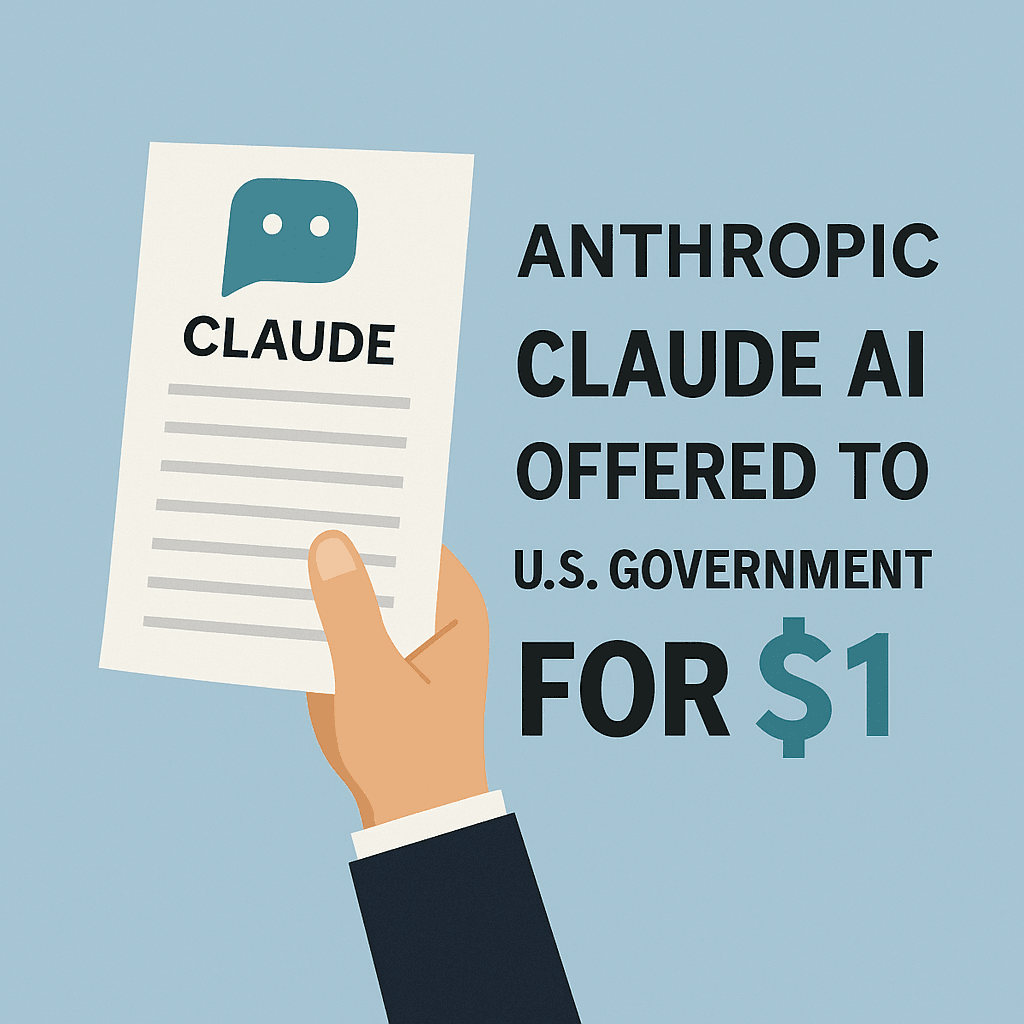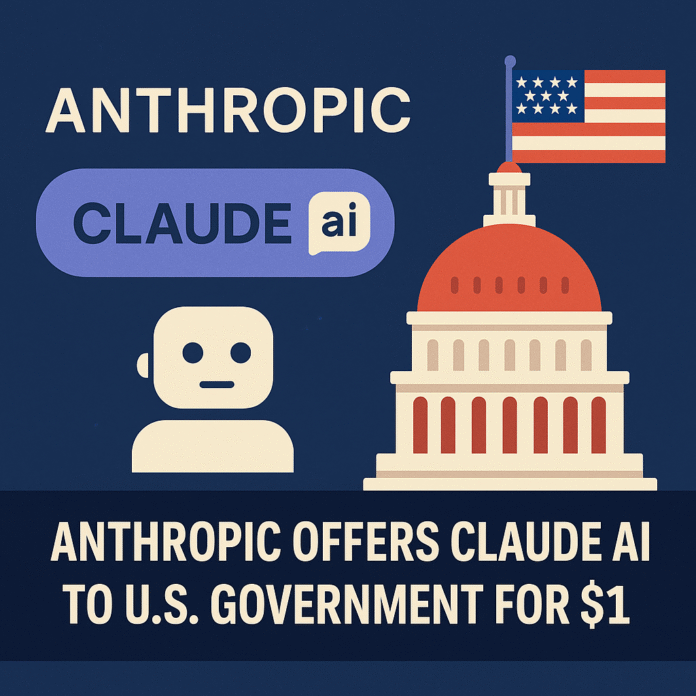Contents
What Happened and Why It Matters
On August 12, 2025, AI research company Anthropic announced it would offer its Claude AI chatbot to all U.S. federal agencies — including the executive, legislative, and judicial branches — for a symbolic price of $1.
The announcement came shortly after Anthropic joined the official list of approved federal AI vendors, alongside OpenAI and Google. This move could dramatically accelerate AI adoption in the public sector while positioning Anthropic as a key influence in future AI governance.

Context and Background
Claude AI is Anthropic’s flagship large language model, designed with a strong emphasis on safety, factual accuracy, and contextual understanding. Backed by Amazon, Anthropic has steadily positioned Claude as a strong alternative to OpenAI’s ChatGPT and Google’s Gemini, both in the private and public sectors.
With federal vendor approval, U.S. agencies now have the opportunity to integrate Claude AI into critical operations, ranging from policy analysis and document drafting to public communication and automation tasks — similar to the trends discussed in our AI Implementation Guide and Advanced AI Guide.
Key Details of the $1 Offer
| Date | Event | Impact |
|---|---|---|
| Aug 5, 2025 | Anthropic approved as U.S. federal AI vendor | Opens access to government contracts |
| Aug 12, 2025 | Announces $1 Claude AI offer to all federal agencies | Encourages rapid adoption and long-term integration |
Why This Matters for AI Policy
By lowering the cost barrier to virtually zero, Anthropic is executing a long-term strategy:
- Early Entrenchment: Once agencies integrate Claude into daily workflows, switching to other AI systems becomes less likely.
- Influence on Regulation: Early adoption allows Anthropic to shape how AI is deployed and governed, a theme we’ve also explored in AI Ethics.
- Competitive Pressure: This forces rivals like OpenAI and Google to respond with aggressive public sector strategies.
“This is as much about policy influence as it is about technology adoption,” said Dr. Laura Mitchell, AI governance researcher. “Whoever gets embedded early in public systems will have a voice in how AI regulations evolve.”
Potential Benefits for the Public Sector
- Cost Savings: Removes budget constraints for experimenting with AI.
- Operational Efficiency: Speeds up document processing, policy drafting, and data analysis — similar to outcomes seen in AI-Powered Business Transformation.
- Technology Familiarity: Builds institutional comfort with advanced AI tools, preparing agencies for more complex implementations in the future.
Related Reads on AitreeHub
External Sources:
- Reuters – Anthropic Offers Claude AI to U.S. Government for $1
- Engadget – Anthropic’s $1 Claude Proposal
Join the Conversation
Do you think Anthropic’s $1 offer is a genuine push for public benefit, or a calculated move to secure long-term market dominance in the public sector? Share your thoughts in the comments below.
